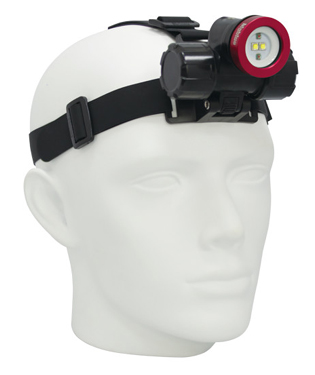Technology has advanced a lot for scuba divers and the equipment they use in the last fifty-years. There has been more improvements in the equipment from twenty years ago versus the last ten years. When some scuba divers go a little deeper or find themselves working harder, such as into a current, they feel the regulator is not supplying enough air. For most recreational diving, just about all regulators on the market are sufficient enough to supply a diver with enough air.
So why does it feel like you are starting to suck rubber after a while? It’s a great question, and it starts with the scuba diver.
Regardless of the regulator brand, how much you paid or the bells and whistles it has, many of the problems that divers face are caused by the diver themselves. It will be hard to believe at first. Once you begin to understand and change your breathing pattern, then you will start seeing a major difference in your breathing at depth or in a current.
Many divers that have this complaint usually over breath their regulator. What does that mean? It means you are trying to pull more out than it can supply. Does that mean that it is not working properly? Not at all. It does mean you are demanding more air, but you, the diver, can control that.
Most problems can be controlled underwater. This is a skill you must practice to increase your confidence and comfort zone. When you go a little deeper, the air you breath becomes more dense. The denser it is, the harder it is to draw from. Naturally, this will cause you to breathe harder.
Swimming against the current could give you the same feeling. Try going for a fast walk, or slow run and see what happens to your breathing rate. Naturally, it will go up.
Is this all the regulator’s fault?
The regulator is designed to supply the diver with an adequate air supply while scuba diving. If that is so, then why does it feel you cannot get enough air to catch your breath?
It is because your mind thinks you are not receiving enough air. It does not actually mean there is not enough air being supplied.
In order to control this, you have to control your mind to think it is getting enough air. How do we do that? We simply start by controlling our breathing pattern. The easiest way to do this is by counting for five-seconds with your hand while inhaling and exhaling. It doesn’t matter if it’s really five-seconds or not, it’s the principle of it. Take a deep breath in and count… one, two, three, four, five… lifting each finger on one hand. Now you start to exhale for the same five seconds… one, two, three, four, five… Use your hand again to count. If you try it right now, you might notice the difference and start to feel a little more relaxed.
If you do this a good handful of times (5-10), you will start to notice your demand for more air will slowly start to decrease. Eventually you will return to normal breathing.
It is the same regulator, same depth, and same conditions, but now you are breathing at a normal pace, or close to it. What changed?
You convinced your mind that you are receiving enough air. All we needed to do is change the breathing pattern. Eventually, things will go back to about normal and you will be able to enjoy your dive.
After you have control of your breathing, you can then look at your trim and buoyancy. Trim is your ability to stay vertical or horizontal without tilting to one side or the other. Controlling your buoyancy will help in preventing you from over breathing your regulator and thinking it is not supplying you with enough air.
All of this will help you enjoy scuba diving so much more.
Butch Zemar “Scuba Butch” is a scuba instructor that has been diving for over 15 years with well over 2,000 dives. He teaches entry level divers as well as instructors at a heated pool in Chicago. Trainers from around the nation come to train in Chicago, so why not train with the best? “Scuba is a romance and entertainment business. We increase communication and relationships through the enjoyment of recreational activities. Visit http://www.ScubaButch.com
Article Source: https://EzineArticles.com/expert/Butch_Zemar/197007







Leave A Comment